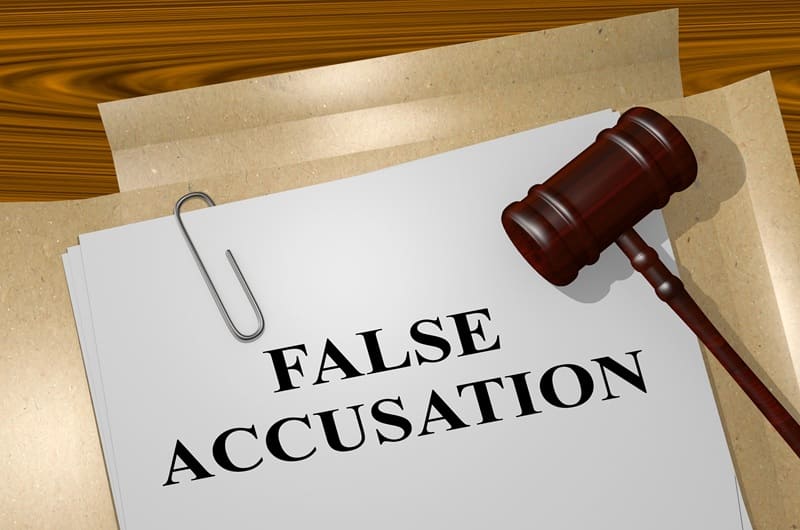How Long Does Divorce Take In Virginia?
How Long Does Divorce Take In Virginia?
Going through a divorce brings many emotions, but knowing what lies ahead helps make each step feel more manageable. One of the first questions many people ask is, “How long is this going to take?” In Virginia, the answer depends on your specific circumstances. Some divorces are quick, while others take longer due to unresolved issues.
Imagine planning a road trip—you can reach your destination faster if you know the route and avoid traffic. Divorce works the same way. Here, you will learn the typical timelines involved, the factors that affect it, and how an Arlington divorce attorney can make a difference.
How Does Divorce Work In Virginia?
Divorce is the process that legally terminates a marriage, but it also resolves many of the responsibilities that came with it. In Virginia, it not only ends the legal union between spouses, but it also addresses matters like property division, support, and custody. Understanding the type of divorce you’re dealing with is one of the first steps in the process.
Uncontested Divorce
This type of divorce happens when both spouses agree on every key issue—custody, property, support, and division of debts. This type of divorce generally moves faster because there’s no need for court intervention to resolve disputes. Such cases can be settled through written agreements and may not require a trial.
Contested Divorce
A contested divorce occurs when the couple cannot agree on one or more important matters. These cases may require court hearings, discovery, and sometimes a full trial. Because more legal work is needed, such cases may take longer and involve higher emotional and financial costs.
The type of divorce you pursue directly influences how long the process takes and what steps are involved. With that in mind, it’s important to consider the key factors affecting the timeline in Virginia.
What Are The Factors That Affect Divorce Timelines?
The entire divorce process in Virginia can take months or even years, depending on the circumstances. Many elements influence how long it takes. While some are based on legal requirements, others depend on the unique details of each marriage. These factors shape how quickly a case moves forward or where delays may arise. Recognizing them early can help set realistic expectations.
Separation Requirements
Virginia law requires spouses to live apart before filing for divorce. If the couple has no minor children and a written separation agreement, the required period is six months. If there are minor children involved, the law extends that period to twelve months. This separation must be continuous and intentional—not simply living under the same roof in different rooms.
Fault Vs. No-Fault
Whether a divorce is based on fault or no-fault also plays a role. No-fault divorces rely on the period of separation and tend to proceed more efficiently. In contrast, fault-based divorces—alleging adultery, cruelty, or abandonment—often involve more time due to the need for evidence, witnesses, and court appearances.
Division Of Property & Debt
The more assets and debts involved, the longer the process may take. Homes, retirement accounts, personal property, and business interests must be evaluated and equitably divided. Disputes over valuation or ownership can lead to extended discovery and litigation.
Custody & Child-Related Disputes
When children are involved, disagreements over custody, visitation, and child support can significantly extend the process. These issues can be emotional and require careful negotiation or judicial review. If the parties cannot reach a mutual arrangement, the court may impose temporary orders before a final resolution is reached.
Spousal Support
Alimony or spousal support is another factor that may extend the timeline, especially when income levels and contributions vary widely. The court considers the length of the marriage, each spouse’s earning capacity, and their roles during the relationship.
Each of these elements plays a part in shaping how long a divorce may take. Once these factors are in motion, the legal process begins to unfold in a series of defined steps that guide the case from start to finish.
What Are the Steps In The Process?
Divorce in Virginia follows a series of required steps. Each one builds on the last, creating a clear path from separation to a finalized divorce. Just like building a strong foundation for a home, skipping a step can lead to delays or unresolved issues.
- Separation Period – The process begins once spouses live apart with the intent to end the marriage. Depending on the situation, this must last six or twelve months.
- Filing the Complaint – One spouse files a divorce complaint with the circuit court. This outlines the grounds for divorce and what they are asking the court to decide.
- Serving the Other Spouse – The other spouse receives a copy of the complaint. They have 21 days to file a response with the court.
- Discovery Phase in Contested Cases – If there are disagreements, both parties exchange documents related to finances, property, and custody.
- Hearings and Trial – Some cases require temporary hearings or a final trial where a judge decides on unresolved matters.
- Final Order of Divorce – After all issues are resolved, the judge signs the final decree, which legally ends the marriage.
Following these steps creates a structured path toward finalizing a divorce, whether the case is straightforward or involves disputes. However, even with a clear process, delays can still happen. It may be due to paperwork issues, disagreements, or missed deadlines. This is where working with the right attorney becomes a key part of keeping things on track and moving forward.
How Can A Divorce Lawyer Help Avoid Delays?
An experienced divorce attorney plays a key role in helping the process stay on schedule. From the start, they ensure all paperwork is filed correctly and in a timely manner, avoiding common errors that can slow down the case. They also help clients prepare strong agreements on issues like custody, support, and property division, which reduces the need for lengthy court hearings.
When disputes arise, a lawyer acts as a steady voice of reason. They guide negotiations, protect legal rights, and help avoid unnecessary conflict. This can lead to faster resolutions and fewer delays caused by miscommunication or unrealistic demands. In contested cases, attorneys keep track of deadlines, court filings, and procedural steps so nothing is missed.
Working with a reliable attorney gives clients peace of mind and control over the process. It’s the difference between feeling lost in a system and having a clear plan forward. The right legal guidance saves time, money, and stress.
How Can The Irving Law Firm Help You?
At The Irving Law Firm, we know that divorce isn’t just paperwork—it’s about your peace of mind, future, and family. That’s why we approach every case with the respect and attention it deserves. We don’t believe in one-size-fits-all solutions. Instead, we take the time to understand your goals, explain your options, and build a strategy that’s right for you.
Whether your divorce is uncontested or headed for litigation, we handle every detail—property division, parenting plans, spousal support, and everything in between. We help you avoid delays, keep the process moving, and make sure your voice is heard at every step.
Clients across Arlington, VA, can count on us for clear answers, prompt communication, and unwavering support from start to finish. If you’re facing divorce, we’re here to guide you forward with confidence and care. When you work with us, you’re never just another case—you’re our priority.
Divorce in Virginia can take anywhere from a few months to over a year, depending on the circumstances. Factors like separation requirements, disputes over custody or property, and whether the case is contested influence the timeline. Understanding the process and what to expect at each stage can help reduce stress and uncertainty.
Working with a skilled divorce attorney can make a difference in how efficiently your case moves forward. At The Irving Law Firm, we’re here to guide you through every step with clarity, respect, and strong legal support. If you’re ready to take the next step, we’re ready to help.






